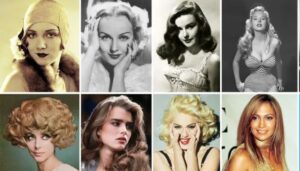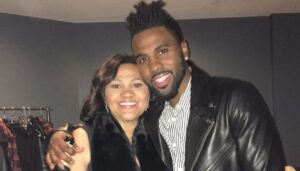According to top casting directors in the entertainment industry, casting is an intricate art form that requires careful consideration and creative intuition.
David Rapaport, who has been cast in hit shows like Gossip Girl, Arrow, and The Flash, says,
“I love seeing movies and TV shows and thinking, Who would I cast in that role? or reimagining where people might fit.”
Rapaport emphasizes the importance of trusting your instincts when it comes to casting.
“I feel like you need to learn that gut instinct of what works tonally for [your show] — that’s a learned instinct, and it’s also a learned thing to trust your instincts,” he told BuzzFeed News.
Looking Beyond Physical Appearance
While physical appearance is certainly a factor, especially on networks like The CW, casting directors stress the importance of looking deeper.
“We wanted someone with a darkness and an edge to him, but someone who looked like He-Man,” Rapaport said of casting Stephen Amell as Oliver Queen on Arrow.
For characters like Chuck Bass on Gossip Girl, Rapaport sought actors who could convey complexity:
“You want to hate him, but you would also probably sleep with him. He’s one of those guys you hate for always getting away with things, but you also want to hang out with him and see what he’s up to next.”
The Importance Of Chemistry Tests
The chemistry between actors is crucial, particularly for shows centered on relationships.
Casting directors often conduct “chemistry reads” to see how potential co-stars interact.
One expert noted, “Chemistry tests are another effective way to ensure that actors can achieve believable on-screen chemistry.”
Embracing Diversity In Casting
Modern casting processes are placing increased emphasis on diversity and inclusion.
One casting professional advises, “When casting your project, consider creating inclusive opportunities for minority groups who have historically been excluded from mainstream media.”
This approach not only creates more authentic storytelling but also provides opportunities for underrepresented talents.
Unexpected Choices Lead To Breakout Stars
Sometimes, actors cast in small roles end up becoming breakout stars.
Emily Bett Rickards, who played Felicity Smoak on Arrow, went from a one-episode guest star to a series lead.
“That could have just been a one-line role, but she popped,” Rapaport said.
Similarly, Grant Gustin was initially seen as a villain on Glee before landing the lead role of Barry Allen on The Flash.
“When The Flash came up and we wanted this relatable, goofy guy who became a superhero, he just made sense to me,” Rapaport explained.
The Impact of Casting On Production
Choosing the right actors affects more than what audiences see on screen—it can also have major impacts on the production process itself.
Well-cast actors often require fewer takes and can foster a more positive on-set environment.
Conversely, miscasting can lead to delays, increased costs, and potential conflicts.
Casting is a delicate balance of art and science that can make or break a TV show or film.
By looking beyond physical appearance, conducting chemistry tests, embracing diversity, and sometimes taking risks on unexpected choices, casting directors play a crucial role in bringing stories to life on screen.





[…] appropriate stunt performers, ensuring proper safety equipment usage, and collaborating with directors to achieve the desired visual impact while prioritizing […]